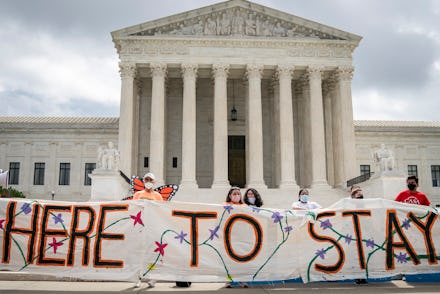The Trump administration has found a way to target DACA hopefuls

Last week, U.S. Citizenship and Immigration Services (USCIS) announced that it would reject requests for new Deferred Action for Childhood Arrivals (DACA) applicants. DACA is an immigration program that provides protection against deportation, as well as avenues for employment and education, for people who immigrated to the U.S. without documentation as children.
The USCIS statement claims to uphold Acting Homeland Security Secretary Chad Wolf's announcement in late July to "reject all pending and future initial requests for DACA, to reject all pending and future applications for advance parole absent exceptional circumstances, and to shorten DACA renewals consistent with the parameters established in this memorandum."
The announcement to reject "initial" requests for DACA followed the Supreme Court's ruling earlier this year that DHS must halt its dismantling of the program. President Trump acted to end DACA in the first year of his presidency, but the justices said that the reasoning the Trump administration provided for shuttering DACA was insufficient. Crucially, the Supreme Court did not rule that ending DACA itself was unconstitutional; it simply ruled that the rationale provided by the administration for this attempt was not sufficient.
DACA was created by President Barack Obama as a way to allow for children born in other countries but raised in the U.S. to lead full lives. It was created via executive order, not by Congress, which makes the program especially vulnerable to the whims of presidential appointees, as we're seeing now.
Now that the USCIS has made it clear that it intends to reject any requests for DACA from new applicants, the fate of hundreds of thousands of people may be subject to further court action. Around 800,000 people already live under DACA protections, some of whom may be subject to the new moratorium if they didn't already renew their DACA status within the past year.
As Daniela Pierre-Bravo wrote for NBC News: "Growing up undocumented and living with chronic anxiety and stress — some of which was directly correlated to being undocumented, but was also influenced by secondary factors of being an immigrant without networks or financial safety — I've slowly learned survival mechanisms." She explained that the anxiety she felt was partially relieved by DACA, but that she still faces an everyday battle due to some Americans' attitudes toward immigrants.
"It hasn't come without a mental and physical cost, triggered by what seems like a constantly moving goal post," Pierre-Bravo wrote. "As a DACA recipient, my battle to manage my own mental health is a daily one."